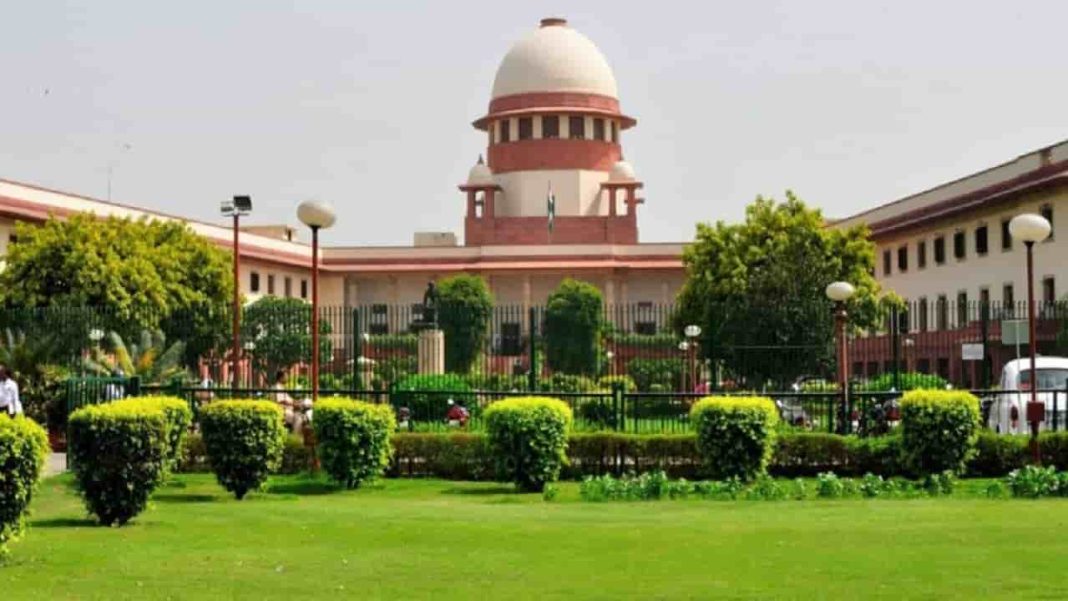The Supreme Court has rejected a petition, which challenged the constitutional validity of Section 8(3) of the Representation of the People Act, 1951, which said that a person convicted of any offence and sentenced to imprisonment for not less than two years shall be disqualified as a Member of Parliament or Member of a Legislative Assembly.
The Bench of Chief Justice of India D.Y. Chandrachud, Justice P.S. Narasimha and Justice J.B. Pardiwala on Thursday dismissed the plea as withdrawn, after petitioner Aabha Muralidharan agreed to withdraw it.
Noting that the petitioner had no locus in the matter, CJI Chandrachud asked her how she was affected by the ruling. He then told her to approach the Supreme Court, in case she was disqualified due to conviction.
Stating that the court will only hear the aggrieved person, the Bench further told the petitioner to either withdraw the plea or the Court would dismiss it.
The counsel appearing for the petitioner contended that it was in a PIL filed by Advocate Lily Thomas that the Supreme Court had struck down Section 8 (4), which allowed convicted legislators to continue their membership during the pendency of appeal.
However, the Apex Court remained unconvinced with the submission and told the petitioner to either withdraw the plea or the Court would dismiss it. Advocate Sriram Parakkat then withdrew the plea.
Filed by Advocate Deepak Prakash, the petition contended that Section 8(3) was in stark contradiction to sub-section (1) of the Section 8, Section 8A, 9, 9A, 10 and 10A and 11 of the 1951 Act.
It said a blanket disqualification, irrespective of the nature, gravity and seriousness of the offences, allegedly against the concerned member, providing for an ‘automatic’ disqualification, was against the principles of natural justice since various convictions were reversed at the appellate stage and under such circumstances, the valuable time of a member, who was discharging his duties towards the public at large, would be rendered futile.
The petition further said that in light of operations of the present disqualification rules under the 1951 Act, the stage of appeal, the nature of offences, the gravity of offences and the impact of the same over the society and the country were not being considered.
In a blanket manner, an automatic disqualification had been ordered against Congress leader Rahul Gandhi, who was convicted in a defamation case of 2019, alleged the petitioner.
Stating that the right under Article 19(1)(a) enjoyed by a member of Parliament was an extension of the voice of millions of his supporters, the petition sought a declaration against automatic disqualification under Section 8(3) of the 1951 Act that and in cases of automatic disqualification under the provision, the same be declared ultra vires the Constitution.
The plea further sought a declaration that the mandate under Section 499 of IPC or any other offence prescribing a maximum punishment of two years in jail would not automatically disqualify any incumbent member of a legislative body since it ‘violated’ the Freedom of Speech and Expression of an elected common man’s representative.
(Case title: Aabha Muralidharan vs UoI and Ors)


